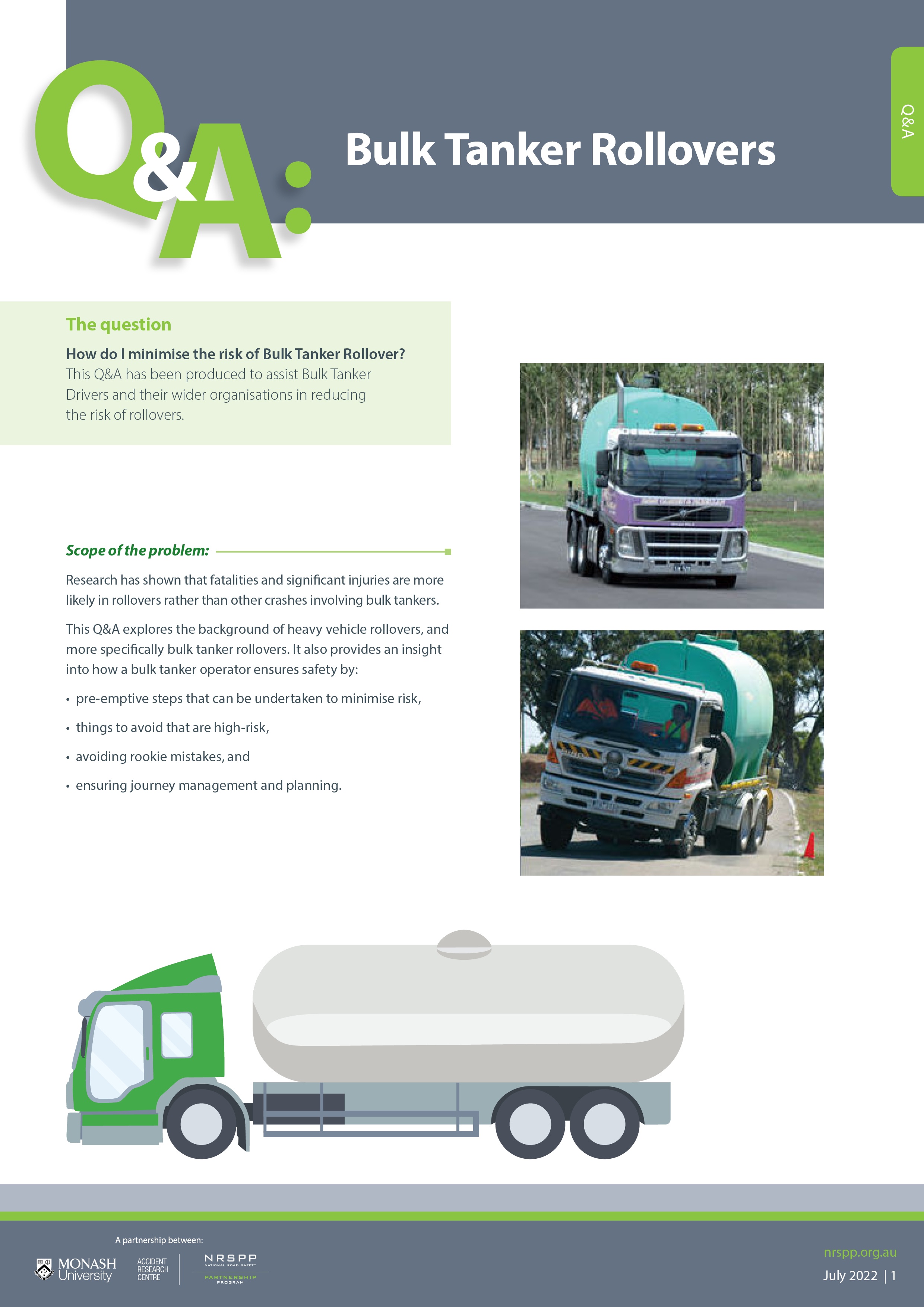NRSPP Q&A: Bulk Tanker Rollovers
The Question:
How do I minimise the risk of Bulk Tanker Rollover?
This Q&A has been produced to assist Bulk Tanker Drivers and their wider organisations in reducing the risk of rollovers.
Scope of the problem:
Research has shown that fatalities and significant injuries are more likely in rollovers rather than other crashes involving bulk tankers.
This Q&A explores the background of heavy vehicle rollovers, and more specifically bulk tanker rollovers. It also provides an insight into how a bulk tanker operator ensures safety by:
- pre-emptive steps that can be undertaken to minimise risk,
- things to avoid that are high-risk,
- avoiding rookie mistakes, and
- ensuring journey management and planning.
Bulk Tanker Rollovers
One type of heavy vehicle that creates unique challenges is the bulk tanker. Bulk tankers transport liquids, dry bulk cargo or pressurised gases.
In addition to the challenge of rollovers faced by heavy vehicles, bulk tankers also face additional rollover related issues:
- By its very nature, the bulk tanker transport task is variable, by initial load and differential loading during delivery resulting in a changing trailer centre of gravity
- Liquids can shift more readily and faster than steadier or solid loads, altering the centre of gravity of the trailer (the tanker in this case) during the actual driving task
- Bulk tankers transport amongst other things dangerous goods, meaning the consequences of a rollover may be far more significant than the crash itself.






